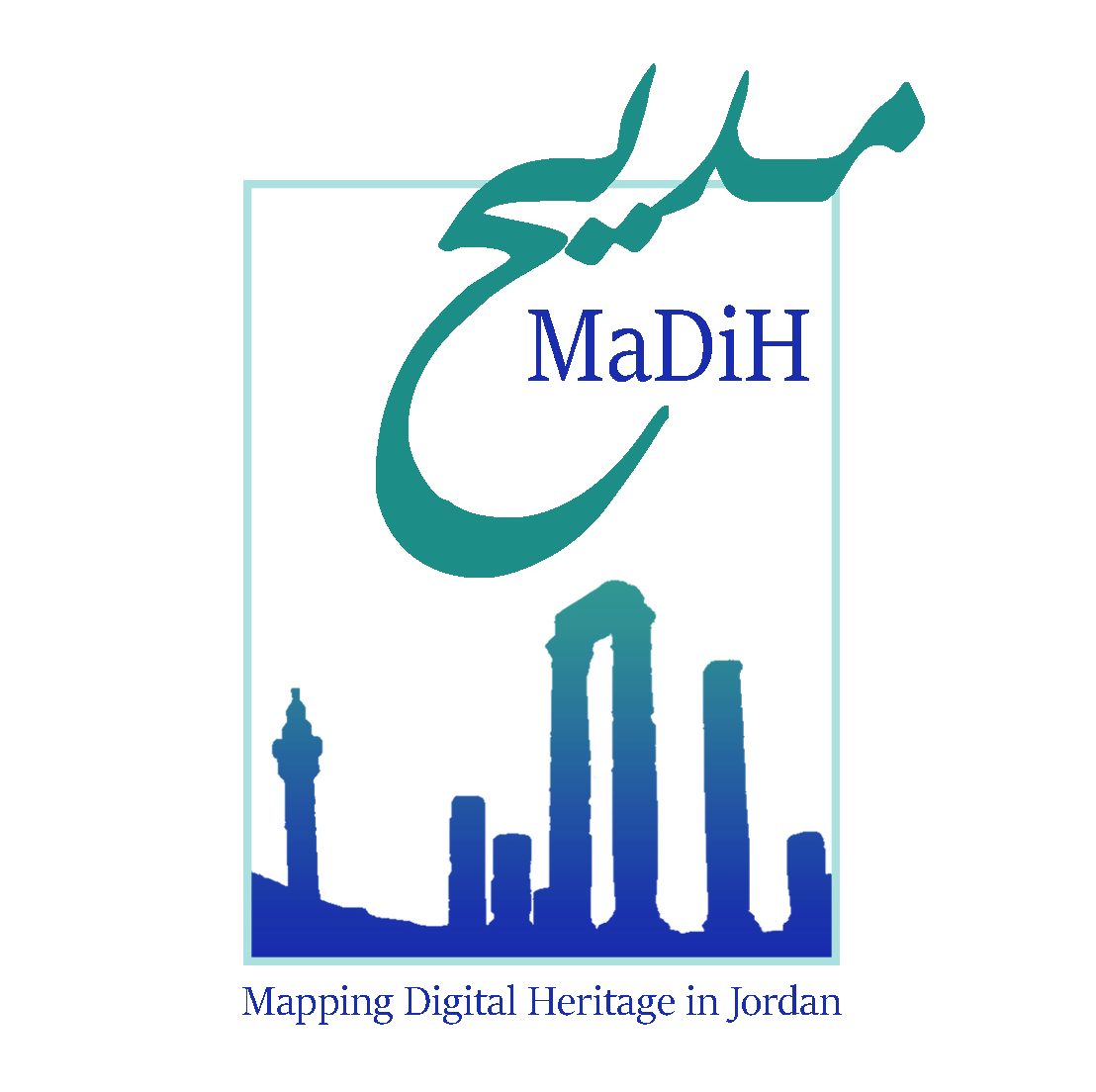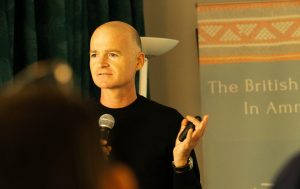
MaDiH Project Principal Investigator/ UK
The Director of King’s Digital Lab (KDL) and Deputy-Director of eResearch at King’s College London. He has a doctorate in History and has worked in the government and commercial IT sectors as a technical writer and editor, business analyst, and project manager. His monograph The Digital Humanities and the Digital Modern was published by Palgrave Macmillan in 2017. In his digital practice he applies computational tools and methods to arts, humanities, and social science subjects. This involves the development of products (websites, electronic books, or mobile applications), the analysis of data (text, image, and social media archives) and the provision of services (digital libraries and archives) that can be used to explore subjects as varied as history, literature, philosophy, art history, statistics, and computer science. He has additional experience applying information management techniques to post-disaster contexts.
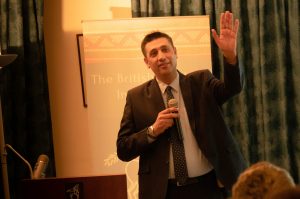
MaDiH Project Principal Investigator/ Jordan
Dr Fadi Bala’awi is the Dean of Queen Rania Faculty of Tourism and Heritage at the Hashemite University, Jordan. Dr. Fadi is an international expert in conservation and management of heritage sites. He published over 40 articles in highly ranked journals on a various number of topics related to heritage management and conservation. Dr Bala’awi is the Vice- President of the International Council of Site and Monuments (ICOMOS – Jordan) and the Vice- President of the Friends of Archaeology and Heritage (FOAH). He is currently working as a member of the supervisory board for a number of international projects in Archaeology and related topics. Dr. Bala’awi is a consultant and special adviser for a number of national and international projects in conservation and heritage site developments. He is also recognized as an international trainer in Heritage Site management and museum operation. Dr. Fadi was the Chairman and Head of the scientific and organizations for a number of international conferences in tourism management, heritage conservation, archaeology and museum education. He also has a practical experience in tourism impact analysis, museum operation and conservation planning projects.
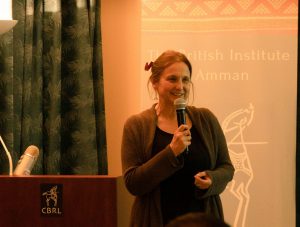
Director of the CBRL British Institute in Amman
Dr Carol Palmer is Director of the CBRL British Institute in Amman. She is an anthropologist, environmental archaeologist and botanist. Her research interests concentrate on recording rural life in its many forms, the contemporary and recent use of plants on the broadest level, cultivated, gathered and grazed, and the effects of changes in food production practices on the landscape and in society. She is part of the Thimar research collective, a group of largely university-based researchers who document and consider the problem of production and livelihood in rural societies across the Arab world. She is also an Honorary Fellow at Bournemouth University where she has a close research collaboration with Dr Emma Jenkins documenting and analyzing rural settlement in Jordan using ethnographic analogy to answer key archaeological questions about building construction, use of space and animal husbandry, and other potential site functions.
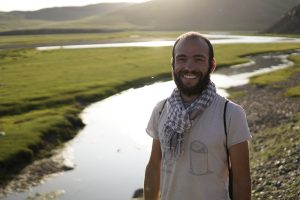
07.07.1984 – 12.07.2019
Dr Andrea Zerbini worked for the EAMENA project from 2015–2019, first as a researcher and then as our IT and GIS Officer. In 2018 he became Assistant Director of the Council for British Research in the Levant (CBRL), in Amman, but continued to work as a consultant for EAMENA. Tragically, Andrea died of cancer in July 2019, a great loss not only to our project, but to all who knew him. A former CBRL Visiting Postdoctoral Fellow in Amman (Jordan), Andrea directed the CBRL-affiliated ‘Productive landscapes project’, which studied wine and oil producing infrastructure in north-west Jordan. He collaborated with several excavation and survey projects in the north of Jordan, including the Abila Archaeological Project and the Mission Hauran Jordanien.
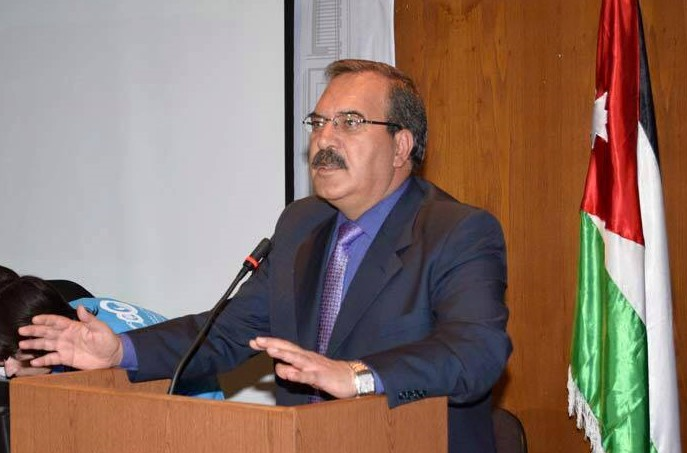
Vice President of the Hashemite University
Prof. Shaher Rababeh is a full professor of architecture and construction. He is the founder and the former chair of the Department of Architecture at Hashemite University. Dr Shaher received his BSc in Architectural Engineering from Yarmouk University, Jordan in 1987. From the University of Oxford he was awarded his MSc in Classical Architecture and DPhil in Architectural Construction Techniques and Methods of Design, in 2005. His approach to research and management is founded in his education and the realities of working as a professional architect and consultant in Jordan for 14 years before getting the DPhil. His research interests include architectural heritage and conservation, history and theory of architecture, architectural design, architectural professional practice, and building technology. He is the author of “How Petra Was Built”. He has published several refereed research papers and book chapters.
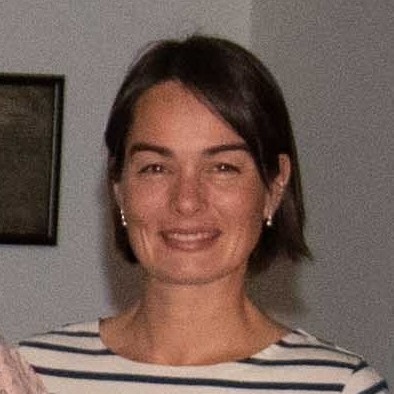
Researcher, EAMENA Project, Oxford University
Pascal Flohr is a researcher on the Endangered Archaeology in the Middle East and North Africa (EAMENA) project, based at the University of Oxford. In this project remote sensing is used to document new as well as already known archaeological sites, which are recorded in an Arches database. Within the EAMENA project Pascal focuses mainly on Jordan, Saudi Arabia, and Lebanon, and on prehistoric sites. Her own research is centred on human-environment interactions in the ancient Middle East, and has included studying past water availability using crop as well as speleothem stable isotopes and assessing the effects of the arid ‘8.2 ka event’ on early farming societies using archaeological, climatic, and radiocarbon evidence. She is currently studying the Late Neolithic on the Karak Plateau in Jordan. She also has extensive archaeological and experimental fieldwork as well as training experience in the Middle East, North Africa, and Europe.
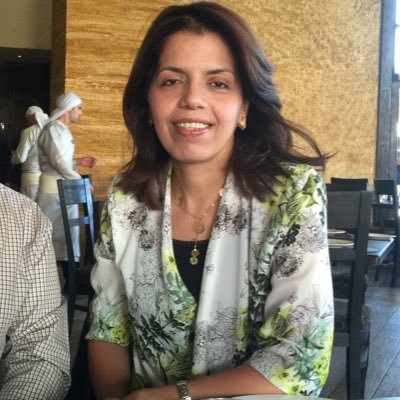
Dean of Prince Al Huessein Bin Abdullah II Faculty of Information Technology at Hashemite University
Sahar Idwan is an Associate Prof. in the Computer Science, currently she is working as dean of Prince Al-Hussein Bin Abdallah II for Information Technology at Hashemite University – Jordan She received her Ph.D. in computer science from Colorado school of mines, USA, 2005 and joined computer science department at Hashemite University, Jordan. She was involved in many administrative positions; the vice dean of the faculty Prince Al-Hussein Bin Abdallah II for information technology, chair of the Department of Computer Information Systems, the director of the e-learning center at the Hashemite University and the associate dean of school of engineering at AURAK – Ras Al Khaimah – UAE (2014-2018). Her research interests include Applied Algorithms, Moving Objects, Mobile Communications and applications, Load Balancing, Bluetooth wireless technology, Wi-Fi and Wi-Fi Direct Technology, e-health, e-learning, and e-application.
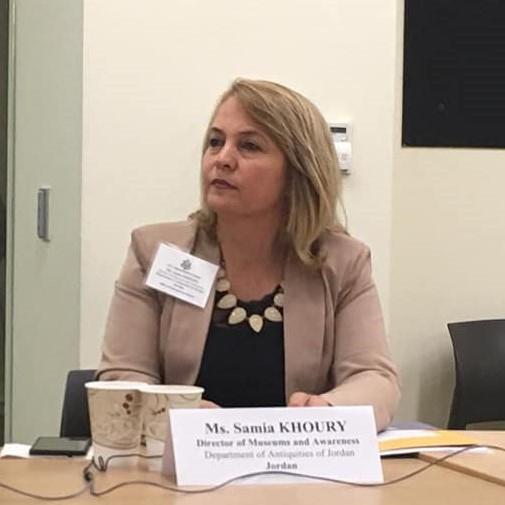
Director of Museum and Awareness Directorate at the Department of Antiquities
Mrs Samia Khouri is the Director of Museum and Awareness Directorate at the Department of Antiquities (DoA), whereas 16 museums in Jordan are under the supervision of DoA. She is also the representative of DoA in Newton Al Khalidi funded Projects. Mrs Khouri has contributed actively in DOJAM Project for the Documentation of Objects in Jordanian Archaeological Museums in partnership with the German Protestant Institute of Archaeology (GPIA). She also worked at the studies and publications directorate as an editor for the Annual of the Department of Antiquities of Jordan (ADAJ) and the Journal for the Studies in the History and Archaeology of Jordan (SHAJ) as well as DoA Strategies.

Executive Director of Jordan Open Source Association
Issa Mahasneh is the Executive Director of Jordan Open Source Association. Established in 2011, the Jordan Open Source Association (JOSA) works for the promotion and implementation of open source principles for the good of Jordanian society. Bringing together the largest community of open source enthusiasts in Jordan, JOSA organizes activities and leads initiatives around open source software, open data, open content and free culture. As partners on MaDiH project, JOSA brings in technical expertise in open data and the Jordanian ICT policy landscape, and gathers different stakeholders to encourage creative inventions based on the data brought about from MaDiH.

Program Coordinator/ Jordan Open Source Association
Raya is a Program Coordinator with the Jordan Open Source Association (JOSA) where she works to promote for free culture and Internet freedom in Jordan. Raya holds an MSc in Human-Computer Interaction from University College London and has been an active member of the open source community since 2014. Her interest in cultural heritage initially stems from her involvement with Wikimedia UK. Recently, along with JOSA and Wikimedia Levant she has started an initiative on Open Jordanian Heritage with the aim to increase the visibility of Jordanian’s heritage online through open source projects such as Wikipedia, Wikimedia Commons, and Wikidata.
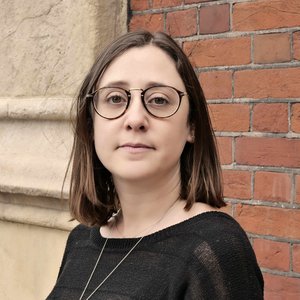
Research Associate/ King’s Digital Lab
Alessandra Esposito is Research Associate for the MaDiH (مديح): Mapping Digital Cultural Heritage in Jordan project based at the King’s Digital Lab (KDL) in London. She holds a PhD in Classics (King’s College London) and has been a Graduate Teaching Assistant in Greek and Roman Art and Archaeology (King’s College London) since 2014. She participated in and oversaw archaeological excavations in Italy and in Jordan, as well as working in commercial archaeology.
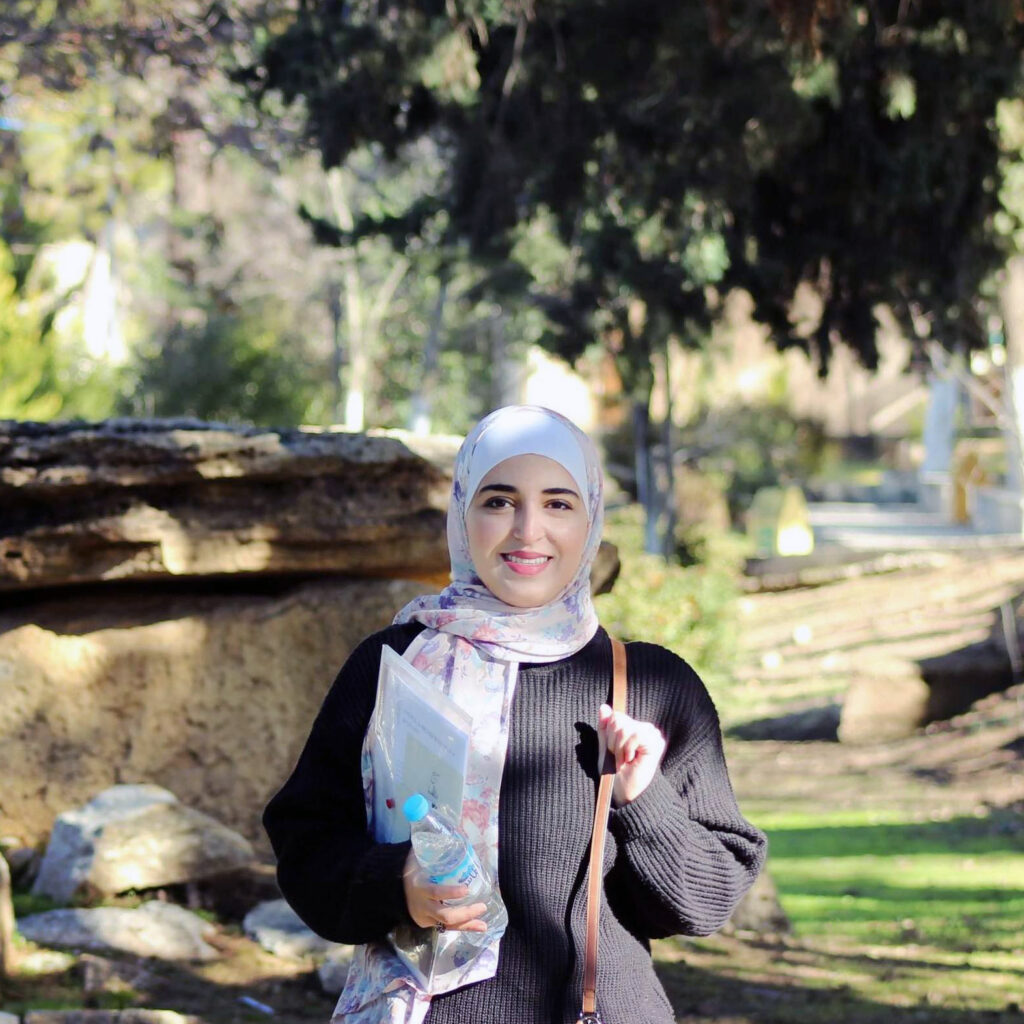
MaDiH Project Manager/ Jordan, CBRL
Shatha Mubaideen is MaDiH (مديح) project manager/ Jordan based at CBRL, the British Institute, Amman. Shatha is an architect who holds a Master of Architecture degree from the University of Jordan. She had the chance to work closely in the field of cultural heritage conservation for the past four years at the Department of Antiquities of Jordan (DoA). She participated in different significant projects and activities at DoA such as Petra Integrated Management Plan, Organizing Committees for ICHAJ 13, Amman and ICHAJ 14, Florence in addition to other architectural conservation projects.
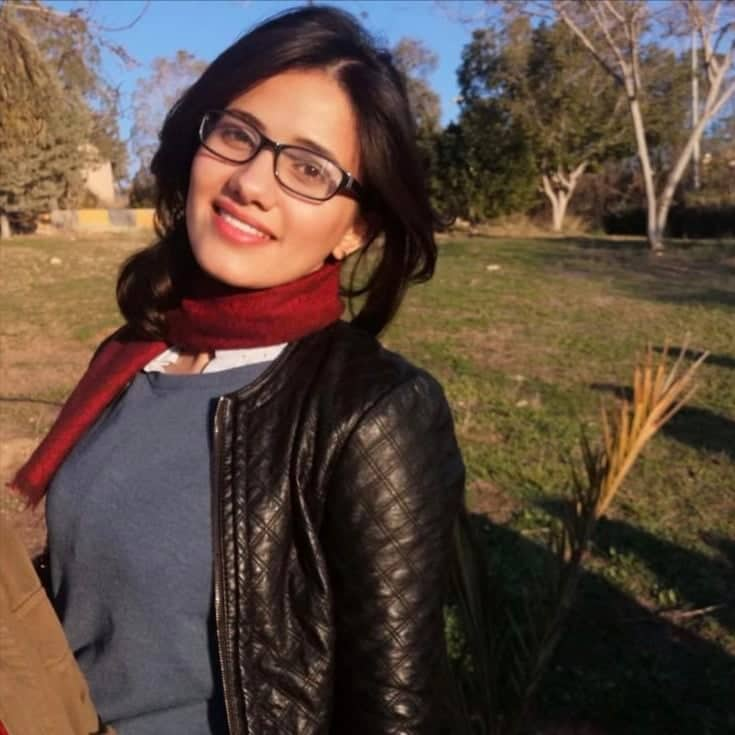
MaDiH Research Assistant/ Jordan, CBRL
Arzaq Yousef is MaDiH (مديح) Research Assistant based at CBRL, the British Institute, Amman. Arzaq holds a bachelor’s degree in Philosophy from the University of Jordan and currently doing her master’s in Social Anthropology at Yarmouk University. Over the past four years, she has participated in various activities and research projects studying refugees, poverty, feminism, oral history and cultural heritage in Jordan.

KDL Team
Dr Arianna Ciula, Deputy Director of King’s Digital Lab (KDL) and Senior Analyst
Miguel Vieira, Principal Research Software Engineer, King’s Digital Lab (KDL)
Elliott Hall, Senior Research Software Engineer, King’s Digital Lab (KDL)

